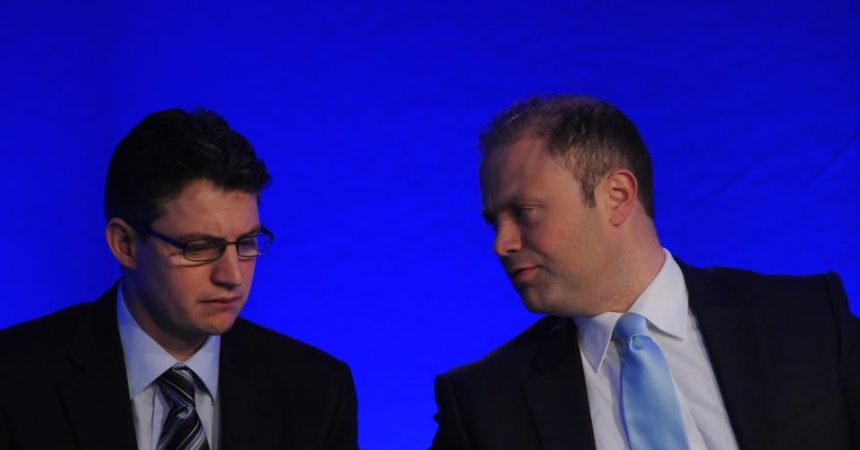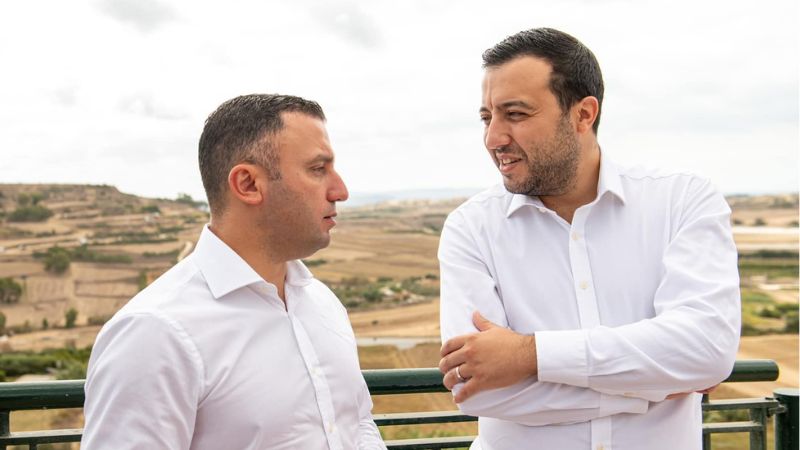A government minister is politically responsible for what happens in their department on their watch.
But why does no one ever resign in Malta? Do different rules apply there?
When I was at university in 1995, Canada held a national referendum on Quebec independence. In the wake of the referendum, the Auditor General’s office discovered that the Party in power, the Liberals, had given a few million dollars in advertising contracts to businesses that were Liberal party supporters.
That sort of thing is so common in Malta that it wouldn’t raise an eyebrow. In Canada, it resulted in a parliamentary inquiry called the Gomery Commission. Though this had happened under the previous administration, the Prime Minister of the day accepted political responsibility and called an election.
When the dust had cleared, the Liberal Party went from a majority government to a devastating loss that cast them into the political wilderness for 10 years. The key people in the scandal also went to prison. The heads of Canada Post and VIA Rail, among others, lost their jobs.
The Prime Minister who called for the inquiry lost his job, too. You could say that this wasn’t fair, something that happened under the previous leader wasn’t Paul Martin’s fault. But he, as the current Liberal Party leader and Prime Minister, recognised that he was politically responsible, regardless.
That is how corruption scandals are handled in a normal, functioning western democracy.
Konrad Mizzi, are you listening? You were caught opening an offshore company within days of being elected. There’s a paper trail of clear, documented proof. Why are you still in government? And why is Joseph Muscat covering up for you, as he is for his chief of staff? To anyone outside of Malta, this is shocking.
Evarist Bartolo, are you listening? When one of your direct appointees — your so-called ‘person of trust’— is caught with his greedy hand in the public cookie jar, YOU are politically responsible. In a normal country, that person of trust would be arrested and tried in court, and Minister Bartolo would resign his position and go back to life in the private sector.
But Malta is not a normal country.
Officials in Malta are happy to take a high salary and a self-important title, but they are completely unwilling to accept any of the responsibilities that go along with that title.
They take the credit for everything that goes well, but run away — sometimes quite literally — from taking action on anything that goes wrong.
When concerned delegations from the European Union, and now the Venice Commission, visit the island to investigate the shocking state of the rule of law in Malta, Mizzi and Schembri are never available to meet with them, and Muscat runs away to sell EU passports with Henley & Partners.
They claim they’re too busy building the economy, but it sure looks like they’re just afraid to face anyone who would see through their nonsensical justifications, and who would hold them responsible.
Of course, Malta’s key leaders aren’t the only ones who run away from accountability.
When the assets of Satabank were frozen, officials at the MFSA literally ran away, rushing off to a pre-planned company retreat rather than face the problem. Was that just incompetence? Bad leadership? Or part of this complete unwillingness to assume responsibility that seems to be endemic to Maltese institutions? Meanwhile, the MFSA is following in the government’s footsteps and throwing taxpayers’ money into whitewashing its reputation.
This is not normal behaviour. Actions like this are not tolerated in a normal functioning western democracy. And yet, no one raises an eyebrow when they happen over and over again in Malta. Why?
I believe it’s a cultural issue.
As an outsider who lived in Malta for six years, it struck me very early that it isn’t just officials in Malta who are allergic to personal responsibility. Their behaviour was a mirror of behaviour I saw every day.
I saw it in the way that squatters built shanties on stolen bits of coastline at Armier Bay: “Why shouldn’t I have a beach house if I want one?”
I saw it in the environmental degradation, and the dumping of rubbish in the countryside: “It’s not my home — who cares?”
I saw it in the out of control illegal building: “I want a new addition / an extra storey / a new building on protected land… I’ll just build it anyway, and bribe a politician to legalise it later.”
I saw it in the way that people would tell me anything to get me to agree to something, while never having any intention of sticking to their word. They’d go behind my back at the first opportunity to make a deal with someone else if they thought it was to their advantage.
“U ejja! Everybody does it! Don’t worry!” Laws were meant to be got around in Malta rather than obeyed. Those who got caught and suffered punishment didn’t feel guilty. The were just unlucky.
But this lack of personal responsibility didn’t stop at economic corruption.
When the Today Public Policy Institute published a shocking list of obesity statistics in 2015, I expected people to say, “Maybe we should eat less and exercise more.”
Instead, they blamed the government: “Our legendary physical laziness and high rates of both obesity and diabetes are witness to the failure of successive government administrations and health authorities to recognise that encouraging a healthy, physically active lifestyle on a nationwide basis is a good investment.”
They were martyrs to the bread basket, and casualties of pastizzi, but it always seemed to be someone else’s fault.
Politicians and officials will never be accountable in Malta, and they will never accept personal or political responsibility, as long as individuals refuse to be accountable in their everyday lives.
Taking personal responsibility on an individual level — and holding your politicians accountable in the same way — is a good place to start.
But there’s another aspect to this lack of personal accountability which is even more disturbing.
In Malta, I saw that it isn’t the person who does something wrong or irresponsible who’s to blame. It’s the person who shines a light on it.
Rather than fix the problem they caused and resolve to do better next time, the person who gets caught fumes with a toddler’s resentment at the person who insists on holding them accountable. They rage and shout, and that self-righteous bluster becomes a substitution for a normal sense of shame.
And so, European Union criticism of Malta becomes part of a domestic Red-Blue political conspiracy orchestrated by traitors who want to seize power.
A foreign newspaper reporting on corruption in Malta becomes a targeted attack on behalf of readers who would struggle to find the island on a map.
And criticism from abroad becomes jealousy at the economic performance of a country whose GDP is that of a medium sized city in the UK.
Statements like this are completely ridiculous to the point of being laughable for anyone who lives outside the inward-looking world of Malta.
But this victim mentality has a dangerous side, too.
In a society where no one is accountable for their own behaviour, and where the one who points out wrongdoing is somehow to blame, it becomes very easy to turn everything back onto that person. To hate them and marginalise them when they refuse to knuckle under, shut up or look away.
And when the stakes are high enough, it becomes much easier to kill that person and get away with it.












